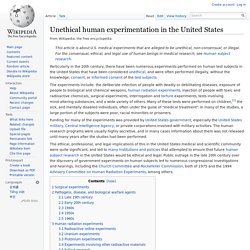

RNA Discoveries Refute Key Evolutionary Argument. Pseudogenes, or "false genes," were initially thought to be mutated and useless genetic "junk" since they don't code for proteins.

When they were first discovered, evolutionists claimed they were leftovers of Darwinian evolution. But ongoing studies clearly show that the evolutionary interpretation was premature and even misleading. With much more powerful tools for genetic investigation now available, researchers are discovering so many biological uses for pseudogenes that perhaps the majority of them are not false genes at all.1 One recent review even asked, "[Are they] pseudo-functional or key regulators in health and disease? "2 Biologists first assumed that pseudogenes are not translated into proteins because they lack some of the codes that signal such translation. In a study published in the technical journal RNA, Oxford Brookes University biologists reviewed some of the newly discovered functions for pseudogenes. References "Pseudogenes" is thus a "pseudo name. " * Mr. Stalin's Brutal Faith. Some have the mistaken notion that faith and religion are linked inseparably with the confession of a supreme being, but many exercise faith in self and other human beings--to the exclusion of the divine.

This, too, is religion. Whatever serves as one's basic system of beliefs about his or her place and role in the universe is certainly a faith, a religion. Joseph Stalin, though an atheist, was a believer. His was a faith resulting in tremendous brutality--nevertheless, a faith! What was this faith? Often an individual's faith is firmly attached to a book of some kind. G. Stanley Hall. Granville Stanley Hall (February 1, 1844 – April 24, 1924) was a pioneering American psychologist and educator.

His interests focused on childhood development and evolutionary theory. Hall was the first president of the American Psychological Association and the first president of Clark University. Biography[edit] Teacher[edit] Danette Clark: Secularists in Today’s American classroom. Unethical human experimentation in the United States. This article is about U.S. medical experiments that are alleged to be unethical, non-consensual, or illegal.

Nazi human experimentation. Nazi human experimentations were a series of medical experiments on large numbers of prisoners, mainly Jews (including Jewish children) from across Europe, but also in some cases Romani, ethnic Poles, Soviet POWs and disabled non-Jewish Germans, by Nazi Germany in its concentration camps mainly in the early 1940s, during World War II and the Holocaust.

Margaret Sanger. Margaret Higgins Sanger (September 14, 1879 – September 6, 1966) was an American birth control activist, sex educator, and nurse.

Sanger popularized the term birth control, opened the first birth control clinic in the United States, and established organizations that evolved into the Planned Parenthood Federation of America. Sanger was also a writer. She used this method to help promote her way of thinking. She was prosecuted for her book Family Limitation under the Comstock Act in 1914. She was afraid of what would happen, so she fled to Britain until she knew it was safe to return to the US. Eugenics.
While eugenic principles have been practiced as far back in world history as Ancient Greece, the modern history of eugenics began in the early 20th century when a popular eugenics movement emerged in Britain[8] and spread to many countries, including the United States and most European countries.

In this period, eugenic ideas were espoused across the political spectrum. Consequently, many countries adopted eugenic policies meant to improve the genetic stock of their countries. Such programs often included both "positive" measures, such as encouraging individuals deemed particularly "fit" to reproduce, and "negative" measures such as marriage prohibitions and forced sterilization of people deemed unfit for reproduction. Eugenics in the United States. Winning family of a Fitter Family contest stand outside of the Eugenics Building (where contestants register) at the Kansas Free Fair, in Topeka, KS.

Eugenics, the social movement claiming to improve the genetic features of human populations through selective breeding and sterilization,[1] based on the idea that it is possible to distinguish between superior and inferior elements of society,[2] played a significant role in the history and culture of the United States prior to its involvement in World War II.[3] Eugenics was practised in the United States many years before eugenics programs in Nazi Germany[4] and U.S. programs provided much of the inspiration for the latter.[5][6][7] Stefan Kühl has documented the consensus between Nazi race policies and those of eugenicists in other countries, including the United States, and points out that eugenicists understood Nazi policies and measures as the realization of their goals and demands.[5] History Early proponents.
Education theory. For example, a cultural theory of education considers how education occurs through the totality of culture, including prisons, households, and religious institutions as well as schools.[1][2] Other examples are the behaviorist theory of education that comes from educational psychology and the functionalist theory of education that comes from sociology of education.[3] The earliest known attempts to understand education were by classical Greek philosophers and sophists.

[citation needed] Educational thought[edit] Recapitulation theory. Evolution News & Views: "No Real Conflict When One Side Gives Up. Richard M.

Weaver, who died at age 53 in 1963, effectively launched modern philosophical and political conservatism in the United States. Everyone cites one of his titles, Ideas Have Consequences, but too few bother to read his actual works. In reading him now I'm struck by what a brilliant ally he would have made in the current debate over Darwinism. Evolution News & Views: Michael Shermer's Conflicted Message. Who wrote the following words: (A) Phillip Johnson, (B) Jonathan Wells, or (C) Michael Shermer? We should not, however, cover up, hide, suppress or, worst of all, use the state to quash someone else's belief system. There are several good arguments for this: 1.
They might be right and we would have just squashed a bit of truth. 2. They might be completely wrong, but in the process of examining their claims we discover the truth; we also discover how thinking can go wrong, and in the process improve our thinking skills. 3. In science, it is never possible to know the absolute truth about anything, and so we must always be on the alert for where our ideas need to change. 4. While certainly (A) and (B) would heartily agree with this prose, the answer is... ...Michael Shermer, in his recent article "Living in denial: The truth is our only weapon.
" It doesn't surprise me that Shermer would say these words. Nonetheless, Shermer's closing words are worth noting: American Thinker: The Evolutionary Scientists: Apostles of a New Morality. Most evolutionary scientists are unacquainted with the nearly extinct brand of academic deference which comes from a humbling realization that a science degree does not automatically confer a plenary understanding of the vast complexity of the universe. The least diffident ones in the field are not shy about airing their personal grievances against what they view as Religion's insolent encroachment on the scientific enterprise.
In response, Christians often feel compelled by necessity to point out that these men of science step outside of their boundaries, when they advise the former not to engage in polemics about scientific matters too lofty for their intellects to comprehend. Christians are hence tasked with reminding overzealous scientists that their discipline is more suited to probe the sundry observable schemes that animate our meticulously woven universe, and not to pronounce moral judgments. Contrary to what Williams thinks, he has not really stumbled upon a novel idea. On the Origin of Species. Various evolutionary ideas had already been proposed to explain new findings in biology. There was growing support for such ideas among dissident anatomists and the general public, but during the first half of the 19th century the English scientific establishment was closely tied to the Church of England, while science was part of natural theology. The Descent of Man. Darwin's background issues and concerns[edit] Charles Darwin's second book of theory involved many questions of Darwin's time.
Charles Darwin's Origin of Species had been met with a firestorm of controversy in reaction to Darwin's theory, largely because it clearly implied that human beings were evolved from animals, contradicting the biblical story in the Book of Genesis. Darwin chose not to make the link explicit in Origin, and although he first thought of the idea in 1837, he put off publishing it for a generation.[1] A single line hinted at such a conclusion: "light will be thrown on the origin of man and his history".
But the conclusion was obvious to his contemporaries, and became the subtext if not the center of many debates over his theory (such as those between T. Evolution News & Views: Has Craig Venter Produced Artificial Lif. History of evolutionary thought. Transmutation of species. Terminology[edit] The proto-evolutionary thinkers of the 18th and early 19th century had to invent terms to label their ideas, but it was first Joseph Gottlieb Kölreuter who used the term "transmutation" to refer to species who have had biological changes through hybridization.[3]
Plenitude principle. Evolutionary ideas of the Renaissance and Enlightenment. Scientific revolution. Vestiges of the Natural History of Creation.